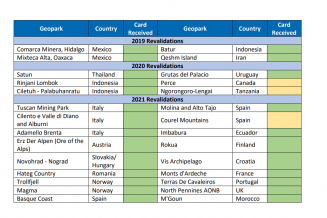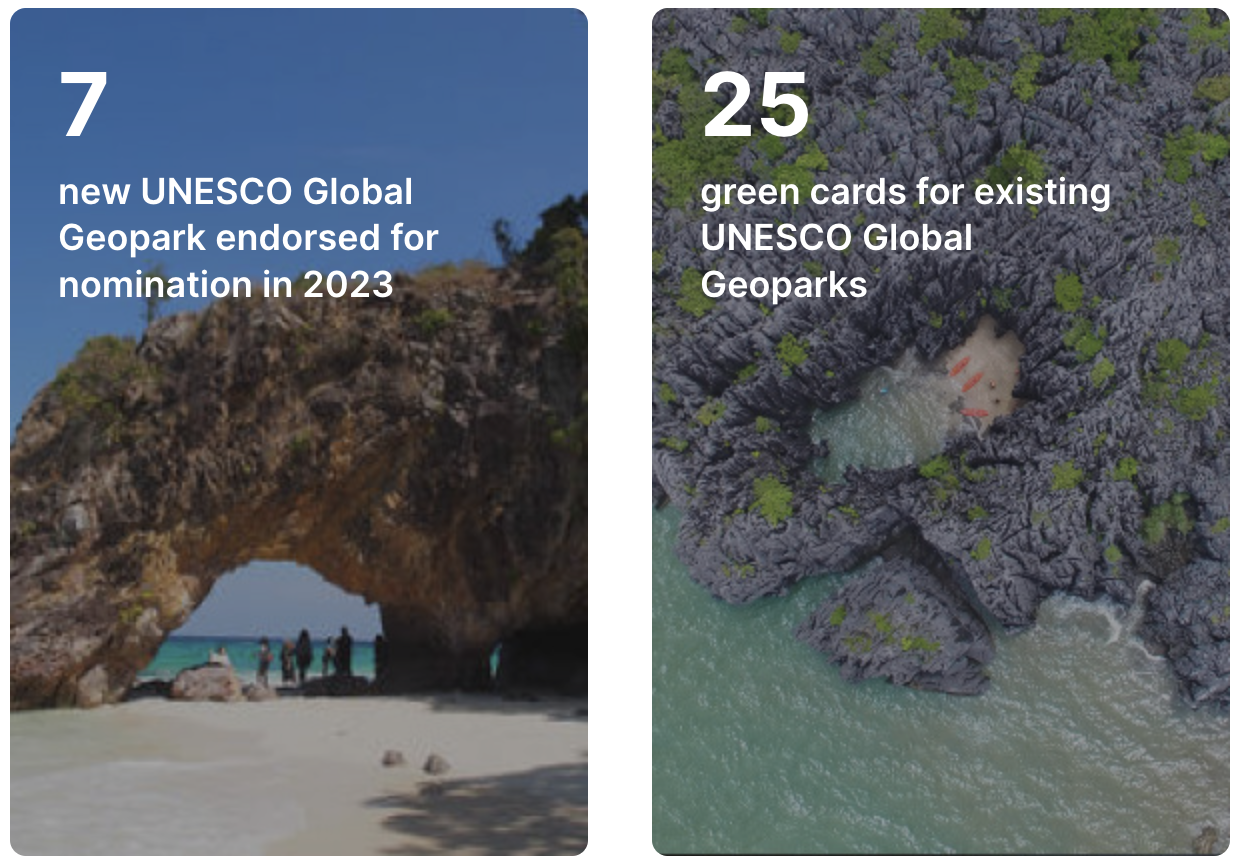
News
UNESCO Global Geoparks Council proposes 7 new Geoparks for endorsement

Metha Yangsanong
September 7, 2022
Last update: September 15, 2022
The UNESCO Global Geoparks Council met in Satun UNESCO Global Geopark in Thailand and online, on 4 and 5 September 2022, to assess 9 new applications for UNESCO Global Geoparks and 28 revalidations from current UNESCO Global Geoparks, all of which were submitted between 2019 and 2022. The Council also examined six extension requests of less than 10% of the existing UNESCO Global Geoparks. The Council further discussed issues related to the missions and assessment process, as well as the overall governance of the International Geoscience and Geoparks Programme.
Key numbers from the 7th Session of the UNESCO Global Geopark Council
UNESCO Global Geoparks proposals
As a result of this thorough examination and in the presence of more than 73 observers and representatives of more than 20 Member States, the UNESCO Global Geoparks Council proposed to forward the nomination of 7 new UNESCO Global Geoparks to the Executive Board of UNESCO, for their endorsement during the 2023 Spring session.
In accordance with Section 2.10 and 5.5 of the Operational Guidelines for UNESCO Global Geoparks, the Council shall present a report on its work and decisions to the UNESCO Global Geoparks Bureau. The report will then be circulated to Member States and Associate Member States of UNESCO. Should the UNESCO Executive Board endorse the outcome of the Council during its spring 2023 session, then the designation of these new sites would bring the total number of sites in the Global UNESCO Geoparks Network from 177 to 184 in 48 countries, welcoming New Zealand and the Philippines as new members.
The Council will meet again in December 2022, to examine the applications that are currently undergoing evaluation and revalidation missions.
The following sites have been proposed for designation:
· Ijen, Indonesia
· Maros Pangkep, Indonesia
· Aras, Iran
· Waitaki Whitestone, New Zealand
· Kinabalu, Malaysia
· Khorat, Thailand
· Bohol, Philippines
UNESCO Global Geoparks are single, unified geographical areas where sites and landscapes of international geological significance are managed with a holistic concept of protection, education, and sustainable development. They apply a bottom-up approach, combining conservation with sustainable development while involving local communities. The UNESCO Global Geoparks Council is responsible for assessing new UNESCO Global Geopark proposals, as well as the revalidation of existing UNESCO Global Geoparks. If endorsed by the Council, the nomination of new Geopark proposals are then submitted to the Executive Board of UNESCO for endorsement.
Revalidation / extension of existing UNESCO Global Geoparks
The Council considered revalidation and extension proposals that had been submitted in 2019, 2020 and 2021, as the impact of the COVID-19 pandemic led to delays in the evaluation process. From the 28 revalidations under consideration, 25 were granted a green card and 3 received a yellow card. A GREEN card means a renewal for 4 years, a YELLOW card is a renewal for 2 years, to respond adequately to the recommendations.

UNESCO
All 6 extension requests of less than 10% of the existing UNESCO Global Geoparks have been accepted.
· Ningde UNESCO Global Geopark, China
· Shilin UNESCO Global Geopark, China
· Lauhanvouri Hämeenkangas UNESCO Global Geopark, Finland
· Beigua UNESCO Global Geopark, Italy
· Toya Usu UNESCO Global Geopark, Japan
This hybrid meeting was the first part of the Council’s seventh statutory meeting, with a second part scheduled for the first week of December 2022, to examine the applications that are currently undergoing evaluation and revalidation missions.




